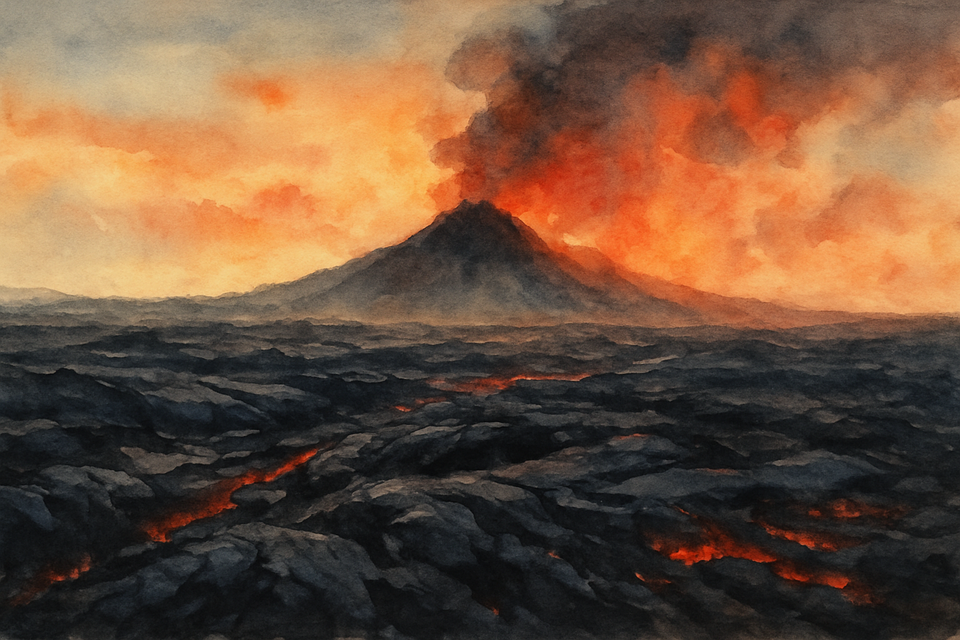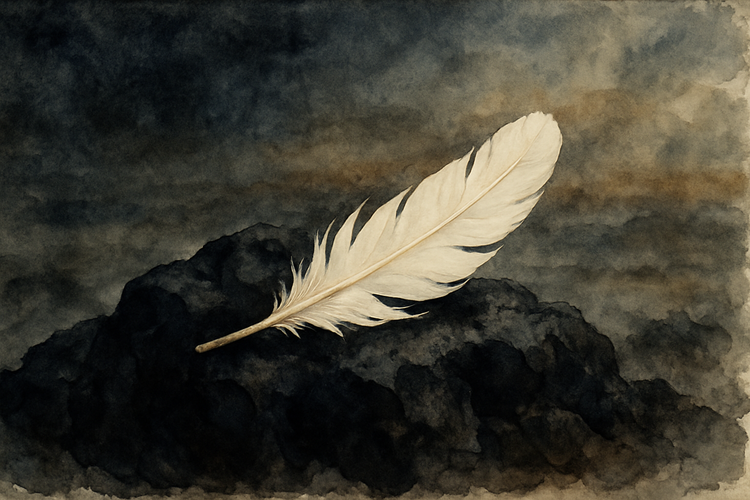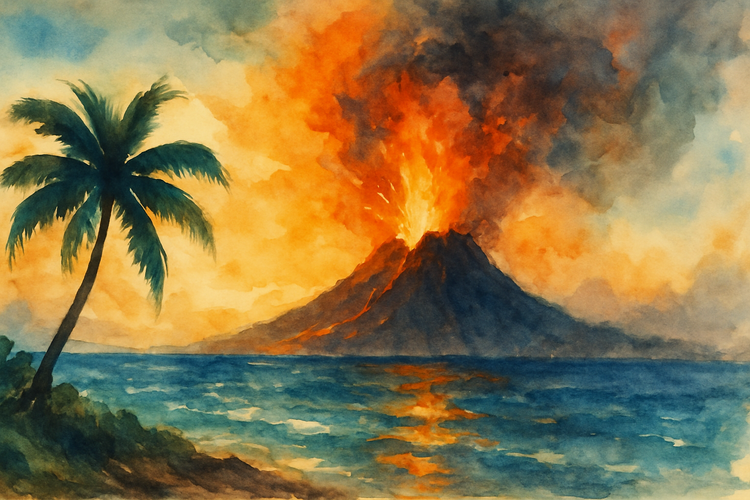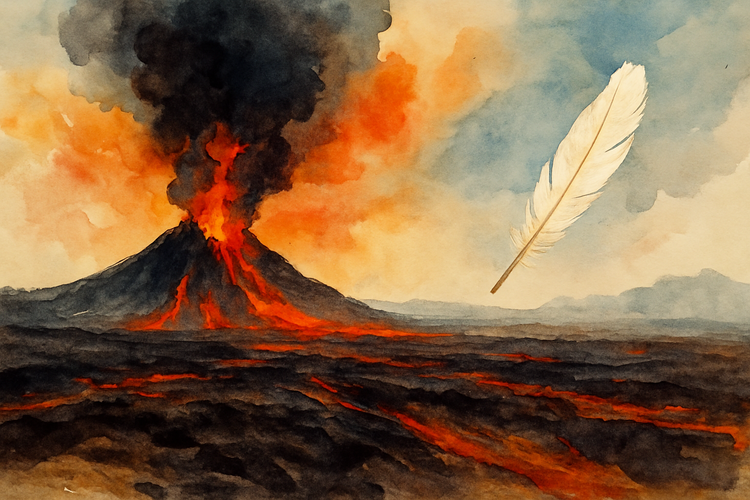Chief of War S1E5 "The Race of the Gods"

Spoiler Warning: This reflection reveals events from the fifth episode of Chief of War.
Seeds in the Soil
The episode begins not in battle but in the soil. Kamehameha kneels with children, showing them how to tend taro root — how to loosen the earth, how to care for what will one day sustain a family. At first it plays like a gentle lesson, almost out of place in a story of warriors and kings. Yet the image lingers, because taro here is more than food. It is a vision of continuity, a symbol of life carried quietly from one generation to the next. By teaching children this act, Kamehameha is not only showing them how to survive but hinting at a different kind of leadership — one that plants toward the future instead of conquering in the present.
Later, when Ka'iana finally meets Kamehameha, this same language returns. Kamehameha speaks of wanting not only a kingdom but a peace that endures, a chief with the heart of a farmer who plants for those who will never know his name. The taro root, in that sense, becomes prophecy of a different kind — not the fiery omens of the gods, but the slow, patient faith that the future can be cultivated rather than conquered. Against the backdrop of lava fields and muskets, this simple act of planting suggests another path, a reminder that belief can be rooted in growth instead of ruin.
Silence and Shadows
That patient vision of faith is not shared by everyone. When Ka'iana sits with Vai, she confesses that she has never felt the gods in her life. For her, faith is not a presence but an absence, a silence that turns even love into something dangerous. Her doubt carries a sharper edge because it does not come from rebellion but from emptiness, a quiet recognition that not all lives are touched by the divine. She warns him that their families will not be the same once they return home.
Ka'iana, still clinging to certainty, insists all will remain as they were. The story answers him immediately with a cut to his brother and wife, now bound together in his absence. Doubt enters here in two forms: Vai’s distance from the divine and Ka'iana’s refusal to see how time erodes the sanctity of what he left behind. Both unsettle the promise that the gods will protect what matters most. What lingers is the contrast between inner and outer silences: Vai’s interior quiet, a life without divine presence, and the unspoken betrayal waiting in Ka'iana’s household. Faith collapses in both spaces, though for different reasons — one because the gods never seemed to arrive, the other because trust was left unattended.
The Double Edge of Welcome
When Ka'iana makes landfall in Hawai'i, he is embraced with joy. His family gathers him close, the reunion radiant with relief and affection. The scene plays with an almost cinematic warmth: laughter, tears, arms tightening around him as if to confirm he has returned whole. Yet the moment carries an undercurrent we cannot ignore. Before his return, we have already seen his brother and wife together, a bond formed in his absence. Ka'iana does not seem to notice, or perhaps chooses not to.
For him, the welcome affirms his place, but for the viewer the scene is doubled — love and loyalty on the surface, betrayal murmuring beneath. The homecoming is powerful precisely because it holds both. This doubleness becomes emblematic of the episode itself: every joy shadowed by doubt, every embrace tinged with fracture. Ka'iana’s blindness — whether willful or innocent — becomes part of the tragedy. The warmth of reunion is real, but it cannot cancel the betrayal that already exists within it.
Racing on Fire’s Remains
The holua sled race that follows is no idle diversion. It is a contest commissioned and judged by Kamehameha himself, the outcome bound to his recognition. The sleds hurtle down cooled lava, a landscape scarred by ancient fire now shaped into something both dangerous and deliberate. The riders must thread control through peril, transforming raw risk into mastery. The setting itself matters. Lava is the residue of destruction, the scar of gods who once remade the land in flame. To race upon it is to confront that past directly, to ride destruction as though it can be mastered, reshaped, even sanctified.
In this sense, the contest is less about speed than about showing who can carry grace across danger. Ka'iana throws himself into the test and wins. His victory is not about popular acclaim but about earning the validation of the one who can determine his fate. In that moment, the gods seem to speak through Kamehameha, whose decision carries the weight of both power and destiny. The race becomes ritual, transforming faith into performance. Here belief is enacted not through prayer but through meeting the chief’s test. The hardened lava track echoes with the history of destruction, yet it is now the stage where leadership is confirmed and trust given form.
Faith in Motion
What matters in the race is not merely the outcome but the witnessing — Kamehameha’s eyes fixed on the riders, his judgment becoming the channel through which divine favor is interpreted. The sled race, then, is more than sport. It is liturgy written in motion, a sacred trial disguised as spectacle. Where Vai experiences only silence, and Ke'oua will later claim rage, Ka'iana’s faith finds expression in speed and daring, confirmed by the chief’s recognition.
If Kamehameha turns faith into a test of endurance, Ke'oua twists it into defiance. His rage against his father’s choices drives him to the edge of a lava field, where he lets the steam and heat lash his skin as if punishment could make him righteous. His body becomes an altar, suffering the burns of a world he believes has betrayed him. Later, he takes his fury outward, burning the food stores of his own people. Destruction becomes his language, the only way he can mark himself against destiny.
When the Gods Fall Silent
In stark contrast to Ke'oua’s fury, Ka'iana shows Moku the muskets he has brought — weapons meant not only for war but for reshaping alliances and futures. One burns what already exists, the other presents new tools for what might be built. Both acts are dangerous, but they reveal the divide at the heart of the episode: whether faith justifies ruin or renewal.
Across the hour, faith takes many forms. In Kamehameha’s lesson with the children, it is cultivation — taro planted for generations yet to come. In Vai’s confession, it is silence, a life lived without the felt presence of the gods. In the sled race, faith becomes ritual performance, its meaning determined by Kamehameha’s judgment. And in Ke'oua’s rage, it is destruction — fire and loss claimed as destiny. Even Ka'iana’s homecoming is touched by this tension, radiant in its warmth yet shadowed by betrayal.
Taken together, these threads suggest that the gods speak not with a single voice but through the choices people make in their name. Cultivation, denial, spectacle, ruin — all are claimed as signs of divine will. Yet the taro root remains the quieter answer: a faith not in sudden revelation but in the slow work of planting for those who will follow. In a story shaped by war and prophecy, it is this vision — the heart of a farmer — that offers the only true peace.



Comments ()